We are delighted to announce £829,000 of funding for the Cerebra Network for Neurodevelopmental Disorders.
Tracy Elliott, Head of Research and Information at Cerebra explains: “This funding, spread over the next four years, marks a strategic shift in our approach to funding research. We are investing in a collaborative and vibrant network of researchers, spread over different university centres, with the combined aim of improving the lives of individuals with multiple and complex needs. This funding continues, and takes to the next level, our long-standing relationship with the research team. Many of the Cerebra Network for Neurodevelopmental Disorders team have developed their careers alongside Cerebra and we are delighted to be broadening and extending our relationship”.
Introducing the Cerebra Network for Neurodevelopmental Disorders
The Cerebra Centre for Neurodevelopmental Disorders at the University of Birmingham was established by Professor Chris Oliver in 2008. Over the last twelve years, in partnership with Cerebra, Professor Oliver has developed a world-leading research programme, through which the behavioural, emotional and cognitive characteristics associated with complex disorders and rare genetic syndromes have been documented. This research has been instrumental in raising awareness of the significant, but often neglected, clinical need that is evident in these populations.
One of the principal achievements of the Cerebra Centre has been the creation of a sustainable future for research into individuals with severe and complex needs. The Cerebra Centre at the University of Birmingham has supported countless students at all levels of study from undergraduate students completing research placements through to Clinical Psychologists in training and Doctoral research students. Almost all of these students have continued to work in areas that support the needs of individuals with severe and complex needs.
In the next phase of this research programme, the Cerebra Centre for Neurodevelopmental Disorders will be making an exciting transition by expanding to comprise a collaborative and dynamic network of researchers. The Cerebra Network for Neurodevelopmental Disorders will be led by four alumni of the Cerebra Centre; Dr Caroline Richards (University of Birmingham), Dr Jo Moss (University of Surrey), Dr Jane Waite (University of Aston) and Dr Hayley Crawford (University of Warwick). Network research hubs located at each university will focus on key themes that are central to improving the lives of individuals with severe and complex needs and their families including research into sleep, atypical autism and mental health, while continuing our work on self-injurious behaviour and pain in this population.
The Cerebra Network for Neurodevelopmental Disorders Team commented: “We are grateful to Professor Oliver for his exceptional leadership, support and guidance to each of us over the last twelve years. We are also extremely grateful to Cerebra for their continued support and we are thrilled to be embarking on this new and innovative phase of our research programme with them. We are confident that this transition will enable further advances in our understanding of the challenges faced by children with severe and complex needs and their families and will enhance our capacity to address these challenges”.
Meet the Cerebra Network for Neurodevelopmental Disorders Team
Dr Hayley Crawford
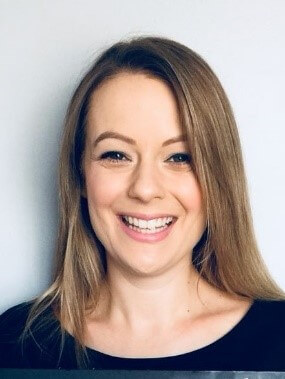
Dr Hayley Crawford is an Assistant Professor at University of Warwick Medical School. Her research focuses on characterising behavioural difficulties and mental health problems in individuals with neurodevelopmental conditions. As part of the Cerebra Network for Neurodevelopmental Disorders, Hayley will conduct research that improves our understanding of autism and anxiety in children with rare and complex needs.
“With the Cerebra Network for Neurodevelopmental Disorders, we are bringing together researchers from different institutions with the common goal of progressing important research to improve the lives of children with complex needs and their families. I am honoured and excited to be involved in that.”
Dr Jo Moss
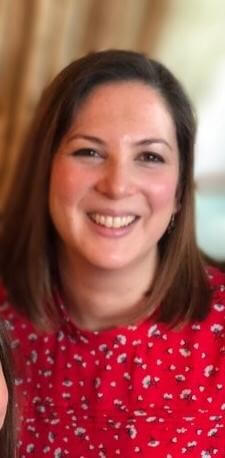
Dr Jo Moss is a Lecturer in Developmental Psychology at the University of Surrey. Her research aims to improve our understanding of the social and emotional wellbeing of individuals with neurodevelopmental conditions. In the Cerebra Network for Neurodevelopmental Disorders Jo will lead a programme of research into atypical autism. This work will improve our ability to assess autism and related social-communication difficulties in children with rare genetic syndromes and will support the development of targeted interventions.
“I was working as a post-doctoral researcher with Professor Chris Oliver when the Cerebra Centre was first established in 2008 and so it is very exciting to now be part of this expansion and transition to the Cerebra Network for Neurodevelopmental Disorders. The Cerebra Network will help us to reach out to and support many more children with severe and complex needs and their families across the UK”.
Dr Caroline Richards
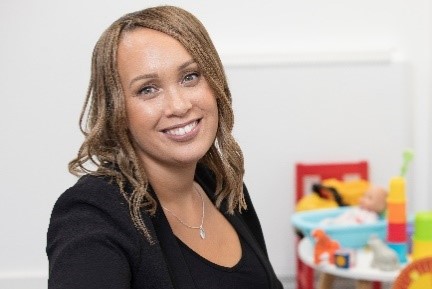
Dr Caroline Richards, Senior Lecturer in Neurodevelopmental Disorders, is a Clinical Psychologist and researcher at the University of Birmingham. Her research focuses on reducing negative clinical outcome for children. Caroline will lead a programme of sleep research in the Cerebra Network for Neurodevelopmental Disorders. This research will help us to understand why sleep problems occur in children with rare genetic syndromes and help families to find solutions to these sleep difficulties. Outside of work Caroline enjoys spending time with her family, especially her twin boys, who have helped her to understand the critical importance of sleep!
“I am thrilled to be a part of the Cerebra Network for Neurodevelopmental Disorders. The Network provides us with a unique opportunity to focus our research on areas that are most important to families of children with complex needs.”
Dr Jane Waite
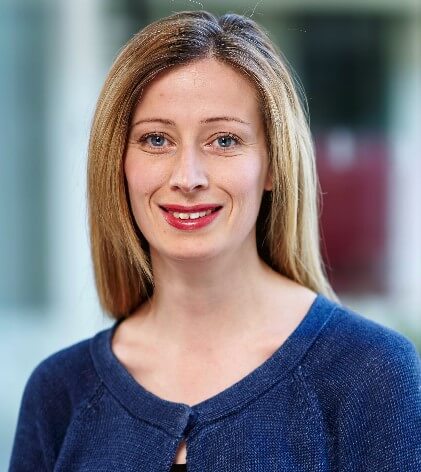
Dr Jane Waite is a Clinical Psychologist and Lecturer at Aston University. Jane’s research focusses on understanding, assessing and treating mental health problems in individuals with neurodevelopmental conditions. As part of the Cerebra Network for Neurodevelopmental Disorders, Jane will lead a programme of work to better understand mental health in children with rare genetic syndromes and will develop assessment tools and interventions to be used in clinical services.
“I am very excited to be part of the Cerebra Network. Together, we will deliver research aimed at transforming outcomes for children with complex needs, and their families.”
In the UK today there are around half a million children and young people with brain conditions that result in complex medical, educational and social support needs. Our research work across neurodevelopmental conditions gives us a unique perspective within the charity research sector that allows us to provide research-driven solutions and advice to those who need it most. You can read about our Research Strategy here.
You can read more about the work of our Academic Research Partnership with CCND here.

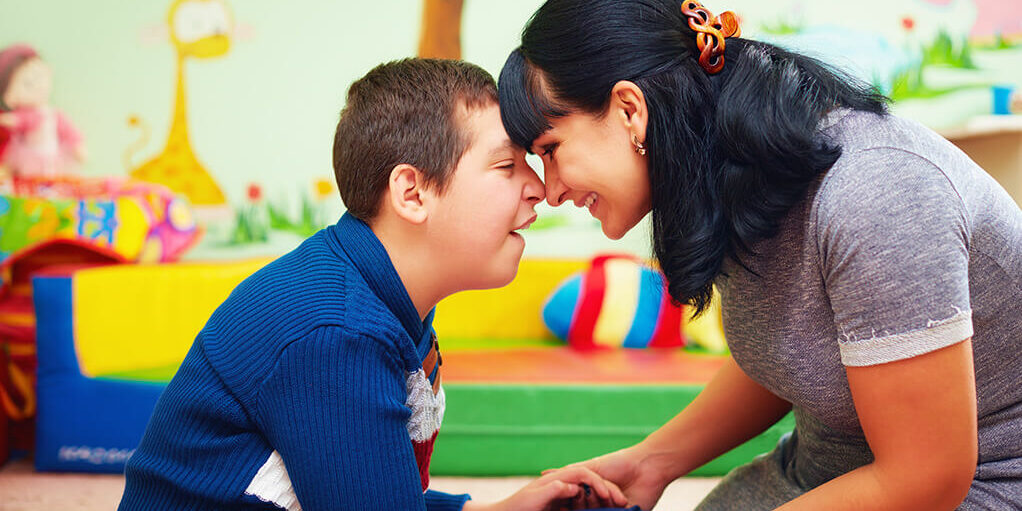








Hi I was wondering how our group of families could be used to assist in research, our children have a rare genetic condition and diagnosis of Syngap1 if we could participate in any research/questionnaires or interviews plea3reach out to us.
Thank you for your comment. We’ve passed your kind offer on to our research team and one of my colleagues will be in touch.
Really excited to read this as a practitioner working with children and young people with neurodevelopmental condition specifically related to causing a dual sensory loss across the midlands. Would be interested in supporting where we can .
Hello,
my name is Hema and my 10 year old son has a de novo CLTC gene mutation. He has ASD and ADHD
Please could you advise if his condtion will be included as part of your study
Kind regards
Hema
Hi Hema, thanks for your comment. I’ve passed it on to someone from our Research and Information team and they will be in touch with you to give you the most accurate information regarding our Research Partners.
I’m parent carer years on CMHT now await neurological assessment.
I have 2 complete opposite lads, one with AuDHD & DLD diagnosis. I think he is PDA but CAMHS don’t diagnose that any more.
Other is highly sensitive in every manner, hyper empathetic, senses and sensory. Awaiting dual assessment, OT and speech and language.
Could be genetic, I have family other with diagnoses. If we are of any help to research
Hi Toni. Thanks so much for sharing that with us. I’ll let our Research and Information team know and come back to you if there are any upcoming research opportunities. Best wishes, Derek